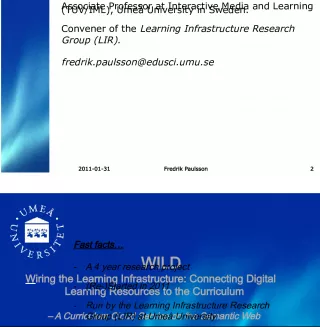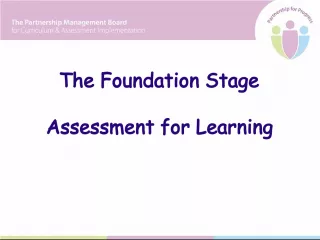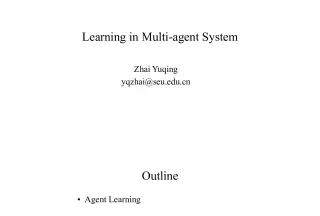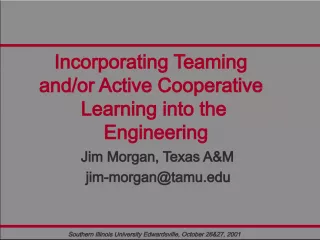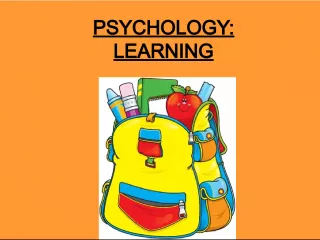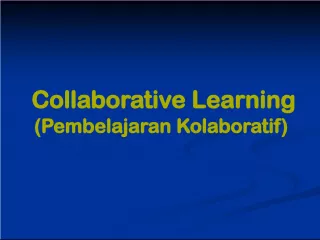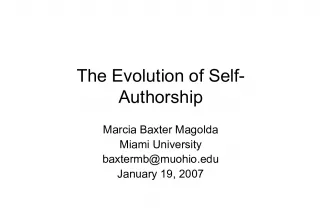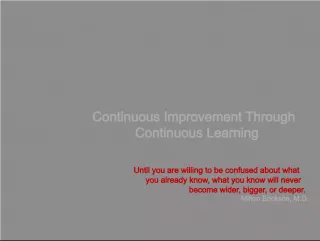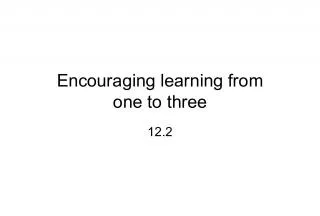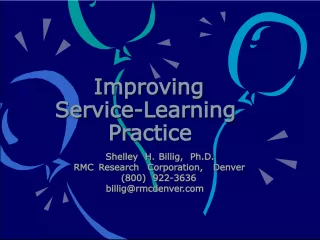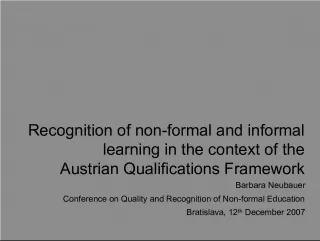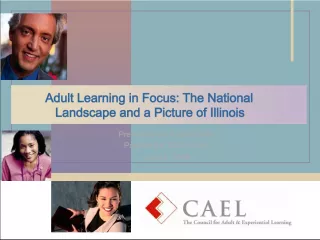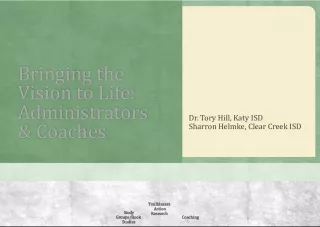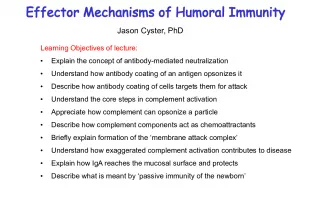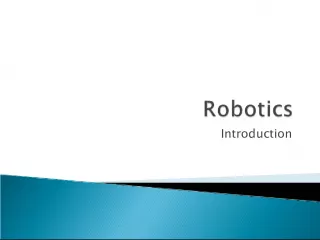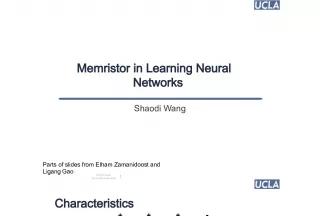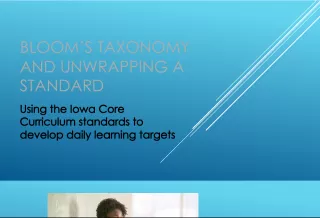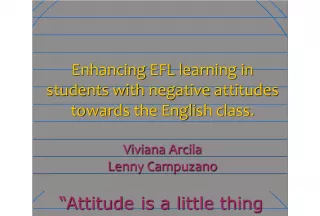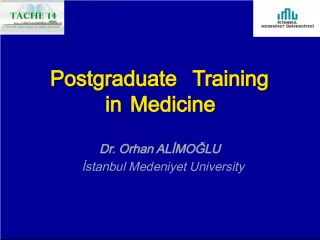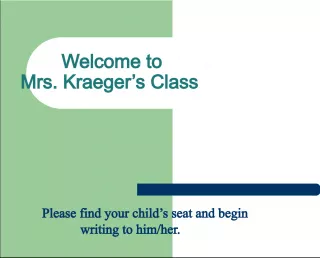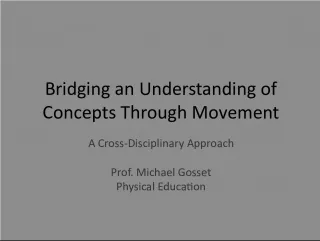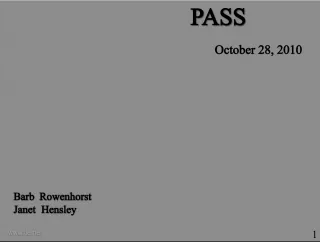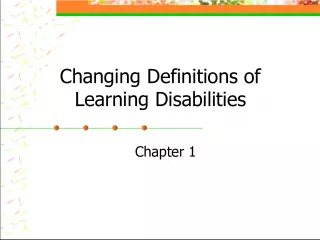Facebook Mediated Interaction and Learning in Distance Learning at Makerere University
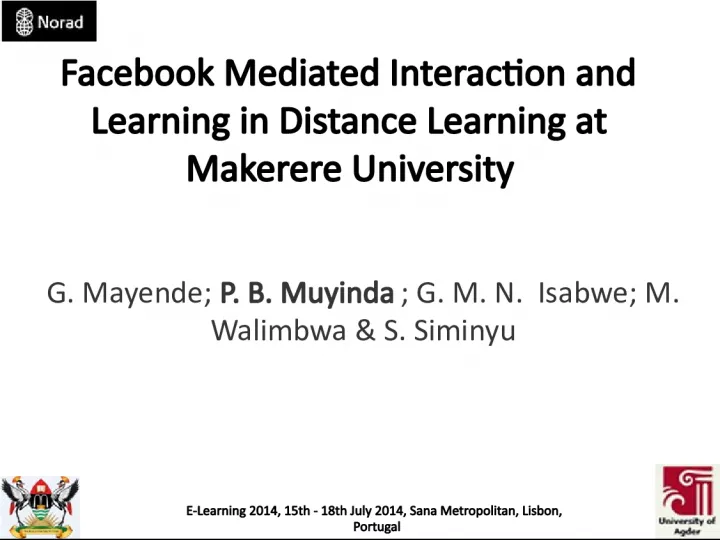

This paper presents the findings of a study on the use of Facebook in distance learning at Makerere University in Uganda. The study explores the impact of Facebook on students' learning and interaction, as well as the factors that affect its effectiveness as a learning tool.
- Uploaded on | 1 Views
-
 vigilio
vigilio
About Facebook Mediated Interaction and Learning in Distance Learning at Makerere University
PowerPoint presentation about 'Facebook Mediated Interaction and Learning in Distance Learning at Makerere University'. This presentation describes the topic on This paper presents the findings of a study on the use of Facebook in distance learning at Makerere University in Uganda. The study explores the impact of Facebook on students' learning and interaction, as well as the factors that affect its effectiveness as a learning tool.. The key topics included in this slideshow are Facebook, distance learning, Makerere University, interaction, learning,. Download this presentation absolutely free.
Presentation Transcript
1. Facebook Mediated Interaction and Learning in Distance Learning at Makerere University G. Mayende; P. B. Muyinda ; G. M. N. Isabwe; M. Walimbwa & S. Siminyu E-Learning 2014, 15th - 18th July 2014, Sana Metropolitan, Lisbon, Portugal
2. Agenda Makerere University (Mak) Distance Learning at Mak Distance Education Leapfrogging Project (DELP) Facebook Mediated Support Theoretical Lens Materials and Methods Findings Conclusion & Recommendation References Authors Acknowledgement E-Learning 2014, 15th - 18th July 2014, Sana Metropolitan, Lisbon, Portugal
3. Mak, Uganda Total students enrolment - 37,262 300 academic programmes (Diploma 14, Bachelors 134, PGD 17, Masters 134) Masters have equivalent PhDs Dual mode university with 5 distance learning programmes at undergraduate level E-Learning 2014, 15th - 18th July 2014, Sana Metropolitan, Lisbon, Portugal
4. Distance Learning @ Mak 2 Weeks Residential Session 11 Weeks of Self-study 2 Weeks Residential Session 2 Weeks Exams Student Support Study Materials ICT/Virtual Support DELP PROJECT Study Centres Group Meetings E-Learning 2014, 15th - 18th July 2014, Sana Metropolitan, Lisbon, Portula One-on- One Support Tutor Facilitation
5. DELP Project Distance Education Leapfrogging Project Partnership project between Mak, Uganda and UiA, Norway Funded by Norad under NORHED Programme Aimed at moving Maks distance education from predominant 1 st generation to 4 th and 5 th generation distance education Education, PhD & Research, Institutional Devt E-Learning 2014, 15th - 18th July 2014, Sana Metropolitan, Lisbon, Portugal
6. Facebook Mediated Support Focus Bachelor of Commerce (External) Course - Introduction to ICT (650 students) Year Third Year A mix of Facebook with other DE support means E-Learning 2014, 15th - 18th July 2014, Sana Metropolitan, Lisbon, Portugal
7. Research Questions What were the students perceptions to Facebook support? Did Facebook mediate learning, and specifically interactive learning? What were the main challenges to Facebook mediated learning? E-Learning 2014, 15th - 18th July 2014, Sana Metropolitan, Lisbon, Portugal
8. Theoretical Lens Inter and Intra-Psychology and Facebook Inter-psychology begins as a social interaction between individuals and, as this interaction goes on, it is internalized hence intra-psychology (Vygotsky, 1978). Mediation of Inter- and Intra-psychology Facebook brings about interaction hence potentially leading to inter- and intra-psychology. E-Learning 2014, 15th - 18th July 2014, Sana Metropolitan, Lisbon, Portugal
9. Theoretical Lens Technology Mediated Learning flexible and online learning environments need learning supports to be designed as integral parts of the learning process (p. 14) Facebook as a Mediator of Learning Vygotsky (1978) argues that social interactions are seen to play a critical role in the processes of learning and cognition. Rambe and Ngambi (2011) identified the need for the active presence of the learners and tutors on social media for the learners to have someone to interact with at any time. E-Learning 2014, 15th - 18th July 2014, Sana Metropolitan, Lisbon, Portugal
10. Materials & Methods Mediator: Facebook Course: Introduction to ICT Year : B.Com (External) Year III , Second Semester 2012/2013. Class capacity: 650 621 joined the Facebook page: The course ended in May 2013 Two month later, we posted a qualitative questionnaire on the page to evaluate learners experience We also interviewed two randomly selected students. E-Learning 2014, 15th - 18th July 2014, Sana Metropolitan, Lisbon, Portugal
11. Findings Students perception Facebook as tool for mediating learning could not replace a teacher Difficult to explain complex concepts To much text and reading most especially from peers Facial expression not supported Gestures not supported Mainly accessed on mobile phones E-Learning 2014, 15th - 18th July 2014, Sana Metropolitan, Lisbon, Portugal
12. Findings... Did Facebook mediate learning? Access to lecture notes Access anywhere anyplace via mobile phones Facebook complemented other support options Facebook enabled the teacher to learners ZPDs Facebook increased interaction among students Had affordances of feedback , questioning, contigency management , modeling & instructing E-Learning 2014, 15th - 18th July 2014, Sana Metropolitan, Lisbon, Portugal
13. Findings ... Challenges ICT literacy levels low for some students Limited access to Internet Mobile network coverage Some students phones didnt support Facebook Cognitive overload by the teachers and students E-Learning 2014, 15th - 18th July 2014, Sana Metropolitan, Lisbon, Portugal
14. Conclusion and Recommendation The possibility of accessing Facebook on mobile phones gave distance learners an opportunity to access the class. Given that the majority of the distance learners have no access to computers and Internet from their places of aboard, mobile phone access to Facebook offered the best alternative. The use of Facebook in the teaching and learning helped to support modeling, contingency management, feedback, instructing and questioning. Systematically integrate the activities in the teaching and learning using Facebook in order to achieve meaningful mediated learning E-Learning 2014, 15th - 18th July 2014, Sana Metropolitan, Lisbon, Portugal
15. References Aguti, J. N. (2002). Facing up to the challenge Universal Primary Education, (UPE) in Uganda through distance teacher education programmes, Pan Commonwealth Forum on Open Learning: Open Learning: Transforming Education for Development. Aguti, J. N. & Fraser, W., J. (2006). Integration of Information Communication Technologies (ICTs) in the Distance Education Bachelor of Education Programme, Makerere University, Uganda, Turkish Online Journal of Distance Education TOJDE, p.166-171, volume 7, ISSN 1302-6488. Anderson, T. (2003). Modes of interaction in distance education: Recent developments and research questions. In M. Moore & G. Anderson (Eds.), Handbook of distance education (pp. 129- 144). Mahwah, NJ: Erlbaum Daina Laurillard, (2006). Rethinking University Teaching a framework for the effective use of learning technologies 2 nd edition, RoutledgeFalmer, 270 Madison Avenue, New York, NY 10016. Gallimore, R. & Tharp, R. (2002) Teaching mind in society: Teaching, schooling and literate discourse in Moll (ed) Vygotsky and education: Instructional implications and applications of socio historical psychology Cambridge university press. Kajumbula, R. (2006) The effectiveness of mobile short messaging service (SMS) technologies in the support of selected distance education students of Makerere University, Uganda., Paper presented at the Fourth Pan-Commonwealth Forum on Open Learning (PCF4). E-Learning 2014, 15th - 18th July 2014, Sana Metropolitan, Lisbon, Portula
16. References... Mayende, G., Divitini, M., & Haugalokken, O. (2006). MOTUS goes to Africa: mobile technologies to increase sustainability of collaborative models for teacher education, Fourth IEEE International Workshop on Technology for Education in Developing Countries (TEDC06), pp.53-54. Muyinda, B. P. & Mayende, G. (2013). Pedagogical Affordances of Social Networking Sites amongst Distance Learners in Uganda. A Paper Presented at eLearning Africa 2013 8th International Conference on ICT for Development, Education and Training, Safari Court, Windhoek Namibia, May 28-31, 2013 Muyinda, P.B., Lubega, J.T. and Lynch, K. (2010) Unleashing mobile phones for research supervision support at Makerere University, Uganda: the lessons learned, Int. J. Innovation and Learning, Vol. 7, No. 1, pp.1434. Oliver, R. & Herrington, J. (2003). Exploring technology-mediated learning from a pedagogical perspective. Journal of Interactive Learning Environments, 11(2), 111-126. Rambe, P. & Ngambi, D. (2011). Towards an Information Sharing Pedagogy: A Case of Using Facebook in a Large First Year Class, Informing Science: the International Journal of an Emerging Transdiscipline, Volume 14. Saul, C. and Patti, S. (2008). Revisiting Learning Theory for e-Learning. The e-Learning Handbook. P423-455 Vygotsky, L. (1978). Mind in society: the development of higher psychological processes, Cambridge: Harvard University press. E-Learning 2014, 15th - 18th July 2014, Sana Metropolitan, Lisbon, Portula
17. Authors Godfrey Mayende, Makerere University, godfrey.mayende@gmail.com . Dr. Paul Birevu Muyinda, Makerere University, mpbirevu@cees.mak.ac.ug . Dr. Ghislain Maurice Norbert Isabwe, Makerere University, maurice.isabwe@uia.no . Michael Walimbwa, Makerere University, walimbwamichael@cees.mak.ac.ug . Samuel Ndeda Siminyu, Makerere University, snsiminyu@cees.mak.ac.ug . E-Learning 2014, 15th - 18th July 2014, Sana Metropolitan, Lisbon, Portugal
18. Acknowledgement The Authors are grateful to the following: Norad for funding the DELP Project and enabling the team to present at e-learning 2014 UiA for the collaborative partnership with Mak E-Learning 2014, 15th - 18th July 2014, Sana Metropolitan, Lisbon, Portugal
19. Deliberations Thank You E-Learning 2014, 15th - 18th July 2014, Sana Metropolitan, Lisbon, Portugal
